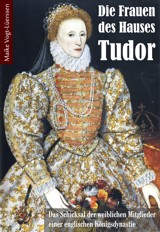Im Jahr 1708 versuchte Jakob (III.) zum ersten Mal, mit Hilfe von französischen Schiffen nach Schottland zu gelangen. Aber ein schweres Unwetter auf der Nordsee verhinderte die erfolgreiche Landung seiner Truppen, und er musste zurückkehren. "After this failure, the Pretender served in the French army in the Low Countries, where he proved himself a courageous and energetic soldier, and at the battle of Oudenarde witnessed the superior military genius of the Duke of Marlborough, with whom he was carrying on a secret correspondence." (in: Francis Lancelott: The Queens of England and their Times, Volume II, id., pp. 784-785). Gegen Ende des Jahres 1713, als bereits mit dem baldigen Tod der Königin Anne Stuart von Großbritannien zu rechnen war, bestand noch einmal eine Chance für Jakob (III.), den Thron seines Vaters zu besteigen: "Meanwhile the Pretender continued to reside within the dominions of the Duke of Lorraine [Ludwig XIV. hatte sich vertragsmäßig verpflichten müssen, Jakob [III.] nicht mehr in seinem Königreich zu dulden], and reports were circulated that he had abjured the faith of Rome for that of the Protestant Church of England, in the hope of securing the crown of Great Britain. These reports caused the bigotted Maria [seiner Mutter], for such it must be allowed she really was, great uneasiness, till they were firmly contradicted by the Pretender himself, who in a letter addressed to her on the thirtieth of December, 1713, assured her that he would sooner lay dead at her feet than abandon his faith; a communication which in itself afforded a sufficient reason for excluding him from the throne of a Protestant kingdom …" (in: Francis Lancelott: The Queens of England and their Times, Volume II, id., p. 789).
Nach dem Tod von Anne Stuart kam es im Frühjahr 1715 zu Aufständen in England und Schottland. Viele wollten die Hannoveraner nicht auf dem englisch-schottischen Thron. Sie wünschten Jakob (III.) Stuart als ihren König, der es in dieser Situation noch einmal versuchen wollte, den Thron seines Vaters zu besteigen. Seine Mutter Maria von Modena besuchte ihn zu dieser Zeit in Lothringen, "accompanied him to the court at Bar, and entreated him, for her sake, not to endanger the lives of himself and his dearest friends by attempting a descent either on England or Scotland, without an ample supply of money, ships, arms, and men. … Maria set out on her homeward journey early in August [1715], and on reaching St. Germains she prevailed upon Louis XIV. to order an army and a fleet to be prepared for the invasion of Scotland by her son. This kind act of the old French King again cheered the heart of the sorrowing Queen, but her joy was of brief duration. Louis XIV. expired on the first of September, and Orléans, the new regent, being at that time indifferent to the interests of Maria and her son, and unwilling to give serious offence to George I., he, at the request of the English ambassador, prevented the armament which was already prepared for the Pretender from sailing, and had the ships unloaded, and the arms, ammunition, and stores, shut up in the royal arsenal of France. Nevertheless, the royal Stuart left Bar in the last week of October, with the determination of proceeding to Scotland, where his standard had already been raised. … at length embarked with but few attendants, on board a small vessel at Dunkirk. ... [sein Versuch, Schottland und England zu erobern, wurde ein Disaster!] ..." the surrender of the rebels in the north of England, and the defeat of the Stuart partizans at the battle of Dumblane … At the close of February [1716], the fallen Queen [Maria von Modena] again embraced her beloved son [Jakob (III.)], who, when his cause had become desperate in Scotland, had sailed to Gravelines, and thence proceeded incognito to St. Germains, where, as his presence in France was interdicted, he after staying three or four days, bade his mother an affectionate adieu ..." (in: Francis Lancelott: The Queens of England and their Times, Volume II, id., pp. 790-791).
Während Jakob (III.) Stuart bei dieser Rebellion mit dem Leben davonkam, verloren viele seiner Anhänger ihr Leben oder ihre Freiheit: "... of the tragic end of the unfortunate Stuart partizans who fell into the hands of the British government. More than a thousand of the common rebels were transported to the colonies, and the Earls of Derwentwater and of Kenmure, and many other nobles and gentlemen … were executed, for the most part, with all the barbarous accompaniments of drawing and quartering. The position of the Pretender himself was by no means a pleasing one. The menaces of England compelled the reluctant Duke of Lorraine [Leopold I. (1679-1729)] to deny him an asylum at Bar; the vassal princes of France and Germany were forced to exclude him from their dominions; and in the end he took up his residence at Avignon. Disastrous, however, as was the result of the Jacobite insurrections in 1715 and 1716, the widow and the son of James II. still cherished hopes of renewing the contest. The Pretender appealed to Sweden, Spain, and Russia, and after some intriguing, prevailed upon the three powers to make secret but formidable preparations for invading Scotland, and placing him upon the throne of Great Britain." (in: Francis Lancelott: The Queens of England and their Times, Volume II, id., p. 792). Letztendlich sollte es ihm nicht gelingen.











